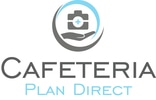|
President Donald Trump recently signed an executive order aimed at improving price and quality transparency in health care. The order is intended to increase availability of health care price and quality information and protect patients from surprise medical bills.
What’s in the Order? Specifically, the order is aimed at:
Within 120 days, the order directs the Treasury to issue guidance to expand access to high deductible health plans. Additionally, the order directs the Treasury to propose regulations within 180 days to:
0 Comments
On May 28, 2019, the IRS releasedRevenue Procedure 2019-25 to announce the inflation-adjusted limits for health savings accounts (HSAs) and high deductible health plans (HDHPs) for 2020. These limits include:
HSA Contribution Limits for 2020 The IRS limits for HSA contributions increase for 2020. Eligible individuals with self-only HDHP coverage will be able to contribute up to $3,550 for 2020, while eligible individuals with family HDHP coverage will be able to contribute up to $7,100 for 2020. The $1,000 catch-up contribution limit that applies to HSA-eligible individuals who are age 55 or older will remain unchanged. HDHP Cost-sharing Limits for 2020 For self-only coverage in 2020, the HDHP minimum deductible will increase to $1,400 and the out-of-pocket maximum will increase to $6,900. For family coverage, these limits will increase to $2,800 and $13,800, respectively. Action Steps Because these limits change for 2020, employers that sponsor these plans may need to make plan design changes for plan years beginning in 2020. Making Emotional Intelligence Work for YouEmotional intelligence (EQ) is the ability to understand and manage your emotions, as well as others’. It’s similar to empathy, but the ability to manage the emotions effectively is key. Many businesses are flocking to high-EQ individuals for their attractive leadership style. Leaders with high EQ are able to communicate their feelings effectively, look at a situation from all perspectives and maintain a positive outlook regardless of the situation. Do We Need EQ Here? Effective managers tend to have higher EQ than others, so you may already have leaders like them on board. They have good people skills, can self-regulate and lead by example. Managers who operate by more authoritarian practices get a much different view of their workplaces than high-EQ leaders. Authoritarian managers are identified by their lack of self-awareness, making them hard to confide in. You want employees to feel comfortable talking to their managers. If your managers have high EQ, they will likely have a better rapport with employees and be able to manage their needs more effectively. Most importantly, fostering high EQ invites more democratic corporate management, which is critical for effectively managing differences in opinion. You don’t have a shouting match when your leaders are able to have a mature discourse. Don’t Forget About PCORI Fees The Affordable Care Act (ACA) imposes a fee on health insurance issuers and self-insured plan sponsors in order to fund comparative effectiveness research. These fees are widely known as Patient-Centered Outcomes Research Institute (PCORI) fees. The PCORI fees were created to help patients, clinicians, payers and the public make informed health decisions by advancing comparative effectiveness research. Fees paid by health insurance issuers and sponsors of self-insured health plans fund the institute’s research, in part. The PCORI fees apply for plan years ending on or after Oct. 1, 2012, but do not apply for plan years ending on or after Oct. 1, 2019. For calendar year plans, the fees will be effective for the 2012 through 2018 plan years. Therefore, the 2018 plan year is the last plan year that these fees will be effective, for calendar year plans. Issuers and plan sponsors must pay PCORI fees annually on IRS Form 720 by July 31 of each year. The fee will generally cover plan years that end during the preceding calendar year. For the 2018 plan year, PCORI fees are due by July 31, 2019. How Much Are the PCORI Fees? On Nov. 5, 2018, the IRS published Notice 2018-85, which increased the PCORI fee amount for plan years ending on or after Oct. 1, 2018, and before Oct. 1, 2019 (that is, 2018 for calendar year plans), to $2.45 multiplied by the average number of lives covered under the plan. Who Must Pay the PCORI Fees? The entity responsible for paying the PCORI fees depends on whether the plan is insured or self-insured.
The Department of Labor (DOL) has advised that, because the PCORI fees are imposed on the plan sponsor under the ACA, it is not permissible to pay the fees from plan assets under ERISA, although special circumstances may exist in limited situations. On Jan. 24, 2013, the DOL issued a set of frequently asked questions regarding ACA implementation that include a limited exception allowing multiemployer plans to use plan assets to pay PCORI fees (unless the plan document specifies another source of payment for the fees). What’s Next? PCORI fees are reported and paid annually using IRS Form 720 (Quarterly Federal Excise Tax Return). These fees are due each year by July 31 of the year following the last day of the plan year. This means that, for plan years ending in 2018, the PCORI fees are due by July 31, 2019. Covered employers should have reported and paid PCORI fees for 2017 by July 31, 2018. |
Small Business blog
Archives
June 2023
Categories |

 RSS Feed
RSS Feed
